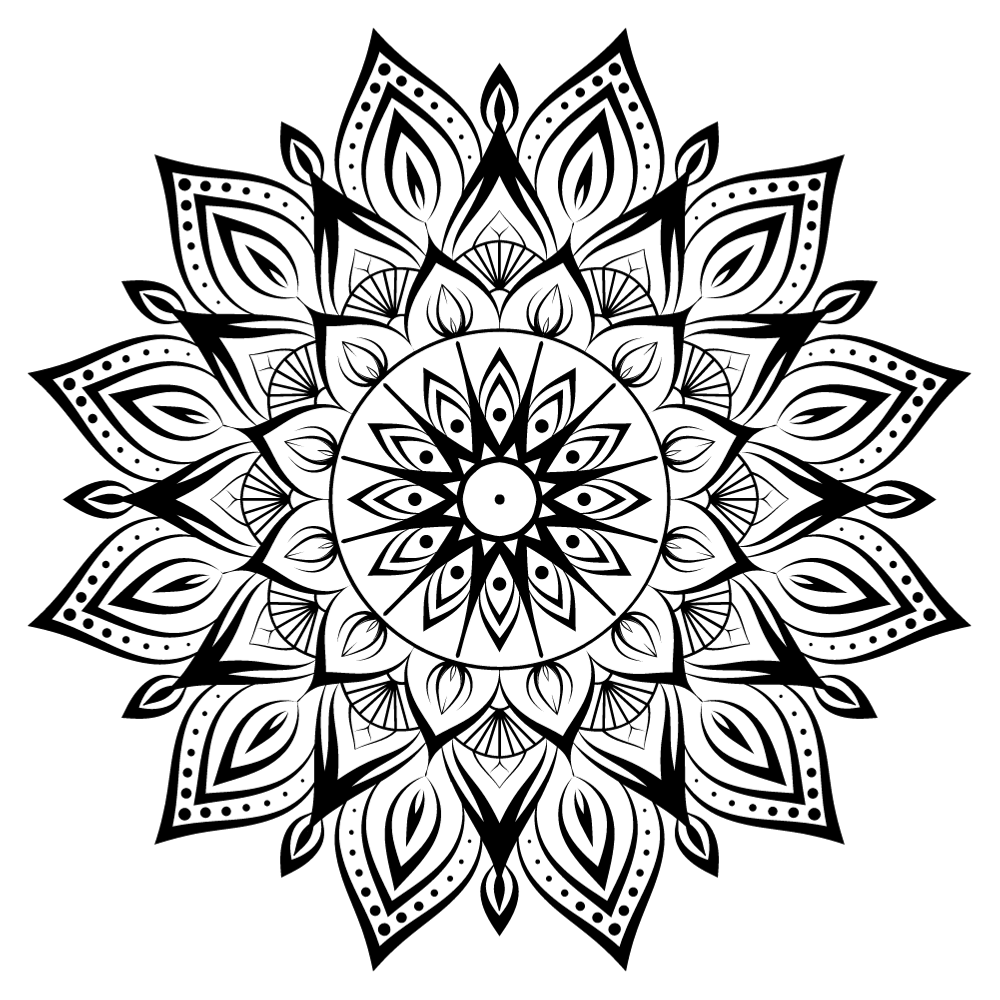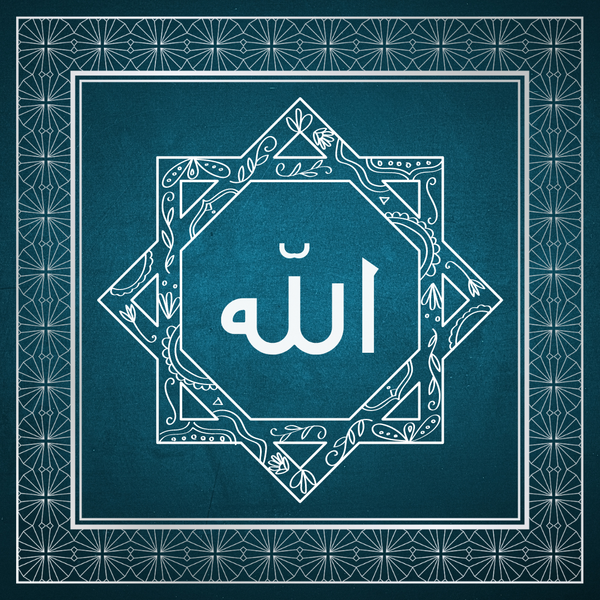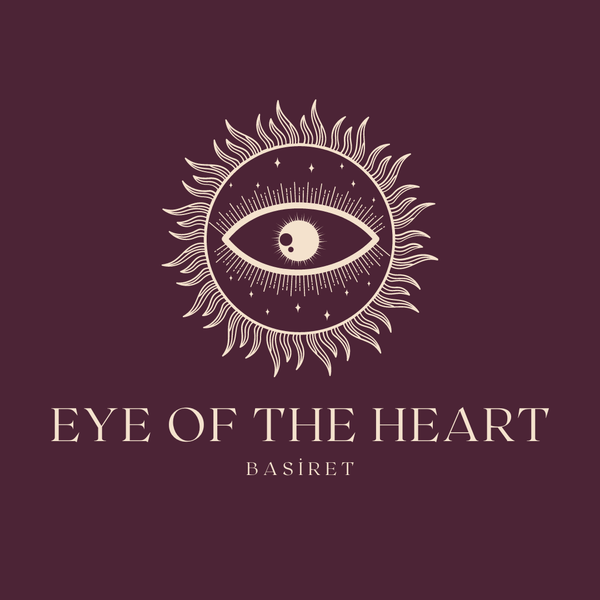Kalp♡Heart

"Kalp", which is found in 130 places as singular or plural (kulûb) in the Quran, means "to change something from one direction to other" (Râgıb) in the Arabic language. In Turkish, "kalbetmek", which means to change from one state to another, and "inkılap", which means to transform from one state to another or to revolutionize in verb form, comes from this "kalp" root. The Quran uses these forms of "kalp" (takallüb, inkılap, münkalib, münkaleb) in 30 verses.
As a noun, "kalp", which is found in 130 places, means "gönül" as it is used in Turkish. It cannot be fully explained as heart and it encompasses meanings of love and wisdom, but we will simply use the word heart. The Quran also uses the word "fuâd" in order to express this meaning in 20 places, in singular and plural (ef'ide) forms. Here, we will use the words "kalp" and "fuâd" as the same concept and evaluate together. Because "fuâd" is used in the meaning of "kalp"; however, as Râgıb el İsfahanî explained in his great Quran dictionary, "Müfredat", "When the kalp / heart is burned it is named as fuâd. As a matter of fact, the meat which is grilled on fire is called feîd-meşviy." (Râgıb el İsfahanî, "Müfredat", fuâd article)
According to Arabic linguists, the reason the infinitive kalp becomes a name for the human heart, is that human heart changes and transforms from one state to the other very rapidly. Even the Prophet referred to Allah as "the One who transforms hearts from one state to other" and drew attention to its main existential and philological characteristic.
The Quran shows the changeability of the heart as a negativity and encourages human beings to get rid of this and attain a stable ego. What the Creator asks from human beings is to attain a stable and determined attitude toward things and events, by being mature. In essence, faith is an evolution toward this stable and decisive attitude. For this reason, what is decent for human being is to know that Allah did not create two hearts in one chest, to direct the ego toward one goal and not to divide existence. (See Ahzâb, 4)
Allah did not create two hearts in a person's chest.
Did not make the spouse you divorce as your mothers, did not make the adopted as your own sons. What you say about these are only empty words. Allah tells the truth and guides to the true path.
Ahzâb Chapter, 4. Verse
Râgıb says that by "kalp", "concepts such as spirit, science, bravery are aimed". Indian scholar Tehânevî (d. 1745) completes this information given by Râgıb as follows:
"Kalp is a divine and spiritual secret that we associate with the heart organ and is the essential meaning of human being. The kalp which the Quran and sunnah refers to is this heart." (Tehânevî, "Keşşafu Istılahât el-Fünûn", kalb article)
Sûfî thought defines "kalp" in this meaning as "the gathering truth". This can be accepted as the secret of existence and being, the witnessing and creative consciousness. The hadith, which states for Allah that "I do not fit in my skies and face of earth but I fit in the heart of my faithful subject" draws attention to this.
When French thinker Pascal (d. 1662) stated that "Universe can not encompass the human but the human encompasses the universe", he became the echo of the Quran in the Western world with centuries of latency. The same Pascal, repeated the following, by echoing the Quran and Islam mystics, who have seen the heart as the center and vehicle of the infallible consciousness.
"Kalp / heart is the short name for the consciousness which grasps the eternal instead of the geometric consciousness."
The Quran introduces kalp / heart as the human being's true self and his/her power of discrimination, evolution and intuition to grasp the eternal truth. This "kalp" is the only vehicle to directly contact the truth as an organ of extrasensory perception and consciousness. For this reason, the Quran states that those who are inadequate in regard to this organ and vehicle, would not understand itself (Kaf, 37). Because, again, according to the Quran, the blindness which prevents one from seeing the truth, is not the blindness of the head eyes but the blindness of the hearts. (22/46)
Undoubtedly, in this, there is an absolute lesson for the one who has the heart or who listens to as a complete witness.
Kâf Chapter, 37. Verse
Haven't they ever wandered on earth that they would have hearts, with it they would have used their minds, and they would have ears to hear? It is true that it is not the eyes of the head but the eyes of hearts inside chests that go blind.
Hac Chapter, 46. Verse
In order to righteously understand the Quran, it is necessary that the heart should not be locked. (47 / 22) Right at this point, it would be on target to draw attention to the following three quotes from the Last Prophet:
"The heart is the house of Allah."
"The heart of the believer is the heavens of Allah."
(See Sâğânî, 50)
"Allah stated that, 'I could not fit in my skies and earth but, I could fit in the heart of my faithful subject."
(Aclûnî, 2/195)
Sufism discoursed upon this relationship of the heart and heavens a lot. We covered this important subject widely in our work titled "Sufism According to Quran and Sunnah", within the section explaining the relation between the human and the universe.
What is necessary in order for the heart, which directly realizes the eternal and the truth, to do its task properly?
In answering this question, the Quran brings forward the concept of "heart disease" (kalp marazı). The word "maraz" is used by the Quran (2/10; 5/52; 8/49; 9/125; 22/53; 24/50; 33/12, 32; 47/20, 29). Another interesting point is that the verses talking about heart disease do that in relation to "nifak", that is the disease of "not wearing one's heart on one's sleeve". We can say the following based on this:
Among the leading diseases which ruin the heart are insincerity and hypocrisy. It is for this reason that the typical characteristic of the maddest hypocrisy, following one's egoist benefits by using the mask of being a Muslim, is a heart disease. (2/10)
In their hearts is a disease that Allah advanced them with regard to the disease. And since they have lied, a distressing torment is envisioned for them.
Bakara Chapter, 10. Verse
Among the other symptoms of the heart disease are vanity, voracity (See 33/32), dirt, disgustingness, flattery to Satan's disorder (See 9/125; 22/53).
Heart disease paves the way for heart darkening, gloom. The Quran talks about this heart darkening a lot and shows it as a trouble blocking the way to Allah, to beauty, to good, to eternity for human beings (39/22).
Hardness, which is expressed by the word "gılzat" in the Quran, is the most dangerous kind of heart disease. The hardening of heart means the darkening of the heart. The Quran also refers to the Sons of Israel's deviating back to polytheism by revolting to their Prophets by using the concept of darkening heart:
Then, your hearts became hard again. It is like stone. Maybe even much harder. There are some stones that rivers erupt from them. There are some that they crack and water comes out of them. There are some of those that fall down with fear of Allah. Allah is not unwary of what you have been doing.
Bakara Chapte, 74. Verse
Those who wish to serve and love human beings should first get rid of the cold heartedness. In fact, as the most perfect faces of serving humanity, Prophets are known to be far away from cold heartedness. The Prophet is called that:
By a grace of Allah, you have treated them softly. If you had been unkind, cold hearted, they would have absolutely scatter from your surroundings.
Âli İmran, 159. Verse
The primary reason that fuels cold heartedness is the endless desires, voracities and ambitions (57/16). The typical representatives of the darkening heart are the Sons of Israel. The hardening of their hearts are such that even stones are jealous (2/74). And their hearts darkened because they did not keep the promises they gave to Allah (5/13). One of the diseases of the heart is deviating from balance (2/7; 9/117).
Among the spoils of the heart are being deceived by and getting stuck in empty and meaningless desires. The Quran shows this fault of human beings together with unawareness (21/1-3).
The attitudes and behavior harming one's heart makes the heart rust. The meaning of heart's rusting means its windows', which could open to truth and eternity, approaching to the point of lock. In this state, the ego has closed the curtain between the Creator and self (83/13-15). According to a hadith, the coming to this state happens as follows: When the subject commits an evil deed, a black spot appears on the heart. If s/he repents and asks for forgiveness from Allah, that spot is erased, the heart shines again. If s/he continues the faulty behavior black spots increase and forms a layer, covering the heart. This is the rusting of the heart.
The sick and rusted heart, finally, goes blind. And the real blindness for human being is this (22/46).
The blindness of the heart is the blindness of "basiret" (See Basiret, "Eye of the Heart" article). This prevents human being to read existence, being and the self. Hence, when this happens, blindness of the heart blocks all internal powers that brings one to solve the secrets of the universe and humanity, preventing all endeavors for those from happening. As a matter of fact, the Quran established a relationship between the heart and the mind and stated that an malfunctioning heart would also prevent the mind from properly functioning (22/46). While doing this, the verse uses the expression "hearts that functions the mind and undertakes mental activity". A'raf 179. verse, on the other hand, talks about the hearts which cannot think in detail to discover the secrets. In addition, the Quran describes people with such hearts as blind and deaf, showing them as being lower than the animals in the body of existence.
The blindness of the heart is followed by the stamping, locking, veiling and sealing of the heart. This last phase is the closing of all the doors for the human being to eternity, to eternal values, to conscience. There's no returning back to light from this darkness. It is the definite loss and failure of the test in the earthly plan.
The Quran uses the term "sealing of the heart" (2/7; 6/46; 7/101; 9/87, 93; 10/74; 30/56), "locking of the heart" (4/155; 47/24), "veiling the heart" (6/24; 18/57) for this last phase. It is also mentioned that the other sensory organs of those whose hearts come to this final stage can not properly function, either.
Sealing of the heart is caused by reasons such as adopting empty desires as idols (45/23), ungratefulness for Allah's blessings (7/101), outrage, knowing no bounds, oppression (10/74), ignorance (30/56; 9/87, 93). Those whose hearts are sealed can not see, understand or live as human beings, anymore (2/7; 6/46; 9/87, 93; 63/3).
A heart pure from disease and defects is named as a "selim kalp" (26/89; 37/84). (Selim comes from S-L-M root, like the word Islam and Selam, and means peaceful, honest, righteous, trusted, safe) The only thing that the Creator Power asks from human being at the day of judgement is to come to its presence with a "selim kalp" (26/89). This means that the "selim kalp" is the power engine and goal of existence and being. It is only with this "selim kalp" that the circle of being returns to the point of origin and the separated part from the Creator reunites with its essence, enjoying the victory of life. "Selim kalp" is consecrated as the aim and all other than the "selim kalp", assets and children are considered only as vehicles.
The goal of religious life is to make the human being attain a "selim kalp", peaceful heart or peace profound. A self where a "selim kalp" is not found, religion is only a deception and a vehicle of deception.
It is very interesting that the word "selim" which modifies the word "kalp", the heart, comes from the same root with the name of the path of oneness, monotheism, Islam. That is from the same root with the word "selam". Thus, "selim kalp" refers to the heart filled with peace, tranquility, trust, safety. In essence Islam is the way of attaining these values. The symbolic name for all these values is Allah. For this reason, the meaning of Islam is given as surrendering only to Allah. When considered from this point of view, "selim kalp" means a heart which surrenders to Allah as required.
The Quran refers to the heart which only surrenders to Allah as "münîb", which means linked, headed. "Münîb kalp" is a heart which receives power from the Rahman, the Most Graceful Allah, by means of a secret way and which trembles for the Rahman (50/33).
The relation between the münîb and selim kalp is obvious. In fact, the verse talking about the münîb kalp states that the passing into transition of this heart into eternity by "selam". If we consider that "selam" is the root of the "selim" adjective, we understand that the "münîb kalp", the linked heart, is the step in passing to the selim kalp, the heart at peace profound.
The ways of attaining a selim or münîb heart are shown within the Quran.
According to the Quran, hearts are tested for takva, for devotion (48/3). In a sense, life is the passage during which this test's questions are experienced one after the other.
We see and witness that those who successfully pass the test questions fill their hearts with grace, warmth, mercy, integration (57/27). These hearts are far away from darkness, hardness, coldness. The sick heart's way leads to darkness; whereas, the way of the heart filled with grace leads to softness. The lack of softness of the heart leads to unkindness and hardness, that this is a disease which disgusts people (3/159).
The conscious remembrance of Allah, the zikir, trembles, softens the heart and then fills it with confidence, peace, tranquility. And according to the Quran, the satisfaction of the hearts is only possible by conscious remembrance of Allah.
It can not be expected that a heart choosing things other than Allah as the beloved to be satisfied (8/3; 13/28; 22/35; 23/60; 57/16). The satisfaction of the heart is a phenomenon that elevates the faith in the word and voice plan to the vision and being plan. This elevation brings the divine good news together with it (3/126; 2/260; 16/106).
The sicknesses of the heart, by darkening and hardening, rusts the heart and separates it from the way of Allah by blocking its way of eternity. The Quran draws attention to the "istikbâr" concept here. İstikbâr is defined as being stuck by feeling of greatness, megalomania or vanity. Vanity is a great trouble, calamity which ruins the heart and cuts its link with the eternal (See "Kibir" article).
The Quran also declares that the sealed hearts are "mütekebbir", "müstekbir", greedy hearts (16/22). Mümin Chapter 35. verse states as follows:
Allah seals all hearts that are captives of vanity and tyranny.
Mümin Chapter, 35. Verse
It is very interesting that the "cebbar" or "tyranny" is added to the "mütekebbir" or "vanity". "Cebbar" or "tyrant" refers to the one who resorts to violence, force, terror and oppression. It is understood that the Quran emphasizes that tyranny and oppression are also inevitable for those with vanity, megalomania and greed.
Sealed hearts are unable to unite around a meaning. Because by refusing the safest way of oneness, that is by refusing the oneness of Allah, they fell into darkness. They can no longer unite. The union they form can only be in appearance, in external plan, in body and matter.
You think they are united, in unison and together; however, their hearts are in pieces.
Haşr Chapter, 14. Verse
The most dangerous appearance of the heart defect in human life is the difference of the heart and the tongue. The Quran finds this as an indication of degeneration and unfaithfulness. The difference between the heart and the tongue is a sin and a betrayal to human being's own heart (2/283).
One of the most typical examples of the divergence of the heart and the tongue is the fake faiths of the Bedouin Arabs. The Hucurat Chapter 14. verse, mentions these Arabs who said "We have faith", and commands replying them as "You have not faith; say only that you have become Muslims; faith has never entered your hearts". This is a clear indication that the divergence of the heart and the declaration of the tongue means the existence of the state of unfaithfulness. Verses Âli İmran 167, Mâide 41, Tevbe 8, Fetih 11 all draw attention to this "tongue's declaring what the heart does not have" and warns the faithful on the path against this destructive hypocrisy.
A heart purified from disease not only brings the human being in direct communion with the Creator but also enables him or her to observe things and events with lessons, and becomes the safest guide in interpreting the flow of existence and being with wisdom.
It should never be forgotten that the trustworthiness of the judgement of the heart and conscience is dependent on the scrupulous meeting of the necessary rational and scientific requirements. The knowledge attained by intuition without meeting the rational and scientific requirements have no binding. Only after scientific and academic requirements are met, the voice rising from a heart filled with the love of Allah and Prophet can become a beacon and bring enlightenment to humanity.
The Prophet has a great trust for such a heart. He states that:
Whatever the müfti tells you as the fatwa, you still ask your fatwa from your heart.
Abstain from the believer's eye of the heart; because s/he looks with Allah's light.
İbn Hanbel, 4/194
Source:
Prof. Yaşar Nuri Öztürk
Main Concepts of the Quran, Istanbul, 2014
26. Press, Volume 1, "Kalp / Heart" concept





